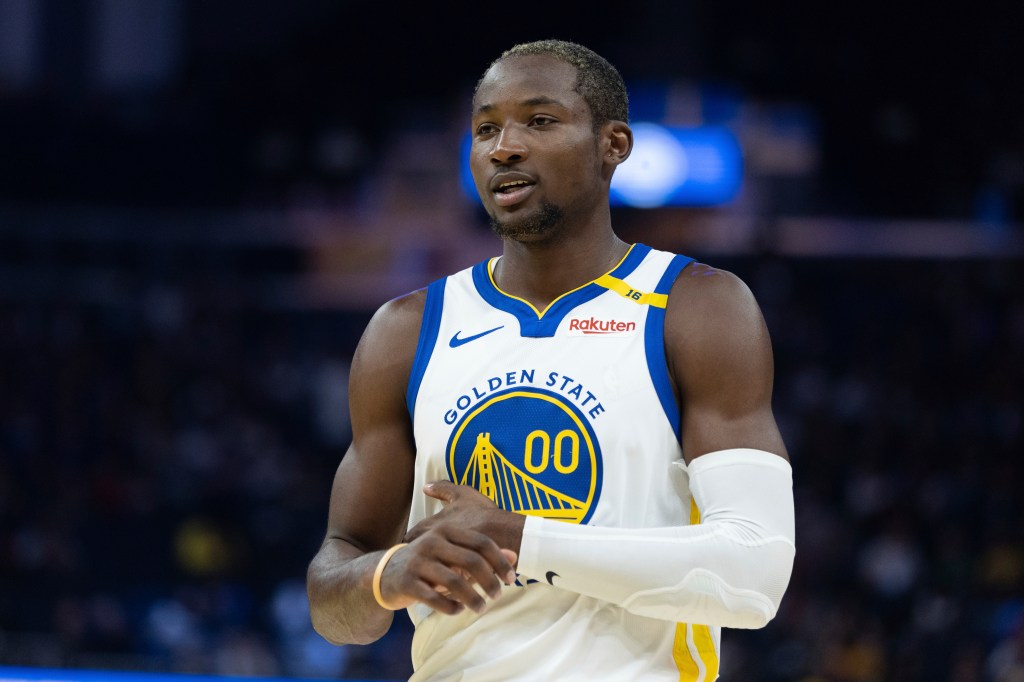
Less than a week before the rookie contract extension deadline, Jonathan Kuminga and the Warriors aren’t close to striking a deal, according to multiple sources familiar with the situation.
But while a deal appears unlikely at the moment, the door isn’t shut. Like most negotiations of this ilk, conversations are expected to pick up in detail in the coming days ahead of the Oct. 21 deadline approaches.
Kuminga, 22, is entering his fourth NBA season. He and the team have expressed mutual interest in a rookie extension, and Warriors general manager Mike Dunleavy Jr. has publicly described talks as productive.
Still, there isn’t a substantial offer on the table for Kuminga at this point, sources told this news organization.
Both Kuminga and Moses Moody are eligible for extensions until next Monday. If they don’t reach agreements, they’ll become restricted free agents next summer, with Golden State maintaining the chance to match any offer sheet they receive.
“Regardless of whether we get something done or not, we want those guys here,” Dunleavy said in late September. “Just because you don’t get an extension done doesn’t mean they’re not going to be here for a long time.”
The Warriors’ prioritization of optionality looms large for both Kuminga and Moody.
If the Warriors extend them, they become poison-pilled, making it extremely difficult to trade them during the season. Without extensions, their 2024-25 salaries — $7.6 million and $5.8 million, respectively — can be packaged rather easily, as they’re affordable for effective, young players.
Dunleavy has embraced operating rationally and not panicking. Draymond Green praised him specifically for that trait at media day. What rationality means for Kuminga’s case, though, is the pursuit of a deal that makes sense for both sides — and what makes sense for Kuminga isn’t necessarily the same as what makes sense for the Warriors.
Many of Kuminga’s draft-class contemporaries have already gotten paid. Scottie Barnes, Cade Cunningham, Evan Mobley and Franz Wagner each inked maximum rookie extensions — worth five years and at least $224 million — with their respective teams.
Kuminga’s camp isn’t hard-lined at that maximum figure, a source said, but it’s hard to imagine him settling for significantly less. If his ascendance continues, he could earn a maximum-level deal as a restricted free agent next summer.
Despite playing the 14th-most minutes in the 2021 draft class, Kuminga’s 10.1 win shares rank seventh. Last season, Kuminga made a significant leap, increasing his scoring average from 9.9 to 16.1 points per game. He’s already a tremendous threat in transition and as a downhill scorer; among rotation forwards shorter than 6-foot-10, Kuminga’s 52.9% field goal percentage last season ranked 11th.
Yet because of the situation Kuminga joined, he hasn’t had the same type of role or usage as players like Cunningham, Mobley, Barnes or Wagner.
As a rookie, Kuminga took essentially a redshirt year as a rookie for a championship team. Then minutes trickled his way on a veteran squad, though he didn’t always have the luxury of playing through mistakes. Even last year, as he turned flashes into more consistent production, his playing time fluctuated. After getting benched for the last 18 minutes of a loss to Denver, a source close to Kuminga told The Athletic that he “lost faith” in head coach Steve Kerr.
Although Kuminga has struggled to make a consistent impact defensively or on the boards, the Warriors are encouraged by his development and expect him to have a big year.
In four preseason games, Kuminga has shot 55.6% on 3-pointers. He’s taking shots from the perimeter more confidently, particularly open looks off the catch. An improved outside shot is the biggest key for him to be able to fit in more lineups as a small forward.
Barring an in-season trade, the Warriors’ best chance at jumping from the play-in to true playoff contention is for Kuminga to make another leap. He can do that whether on an extension or not, while extending him jeopardizes the team’s ability to make a home-run swing if the opportunity presents itself.
From the Warriors’ perspective, that’d be the best of both worlds: keeping the homegrown talent in-house while maintaining roster flexibility.
“We want those guys here,” Dunleavy said of Kuminga and Moody at Summer League. “We believe in them, we drafted them.”
The only tangible risk in not locking in Kuminga long-term is potentially damaging the relationship between him and the organization. The precedent has been set many times over in the NBA of teams taking care of their promising young players before they technically have to (even the Warriors did that, in 2021 with Jordan Poole, which became somewhat of a cautionary tale).
Negotiations can change quickly, and finding common ground remains possible over the next six days. But present state of negotiations and the incentives on both sides point to Monday’s deadline passing without a deal.

















































